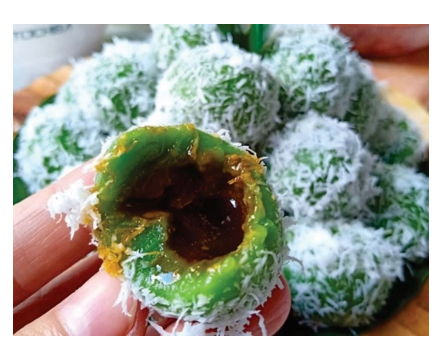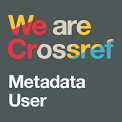The Ethnoscience-Based Project Based Learning Model on Learning Outcomes and Scientific Literacy
DOI:
https://doi.org/10.51574/ijrer.v4i4.3843Keywords:
Ethnoscience, Learning, Critical Literacy, PjBL, ScienceAbstract
Many students struggle to understand science because it's too abstract and removed from life. Despite their scientific value, local wisdom and traditional knowledge are typically neglected as learning resources. The connection between universal science and local cultures is referred to as ethnoscience. In ethnoscience-based PjBL, students learn theory and observe how science applies to their culture. Therefore, this study intends to determine and describe the effect of the ethnoscience-based project-based learning (PjBL) learning model on learning outcomes and scientific literacy. This study uses quantitative research with ex post facto research method. The subjects of this study were class VII students of Middle School 4 Palimanan, Cirebon Regency. Data collection uses questionnaires, observations, and test questions with a total of 30 items, and the number of samples (respondents) used is 60 students. The results of this study indicate that the application of the ethnoscience-based project-based learning model positively affects the learning outcomes of class VII students in science subjects, as evidenced by a calculated t value of 4.637 compared to a t table value of 1.672, resulting in an influence of 25.8%, while the remaining 74.2% is affected by other unexamined variables. Similarly, the application of the ethnoscience-based Project Based Learning model enhances the scientific literacy of seventh-grade science students. The influence is shown based on the calculated t value of 7.537 > t table = 1.672, with a 48.6% effect, while the remaining 51.4% is influenced by other variables not examined in this study. This research will produce a structured ethnoscience-based PjBL learning model that can be used as a guide for teachers.
References
Ardianti, S. D., & Raida, S. A. (2022). The effect of project based learning with ethnoscience approach on science conceptual understanding. Journal of Innovation in Educational and Cultural Research, 3(2), 207-214. https://doi.org/10.46843/jiecr.v3i2.89
Bellová, R., Melicherčíková, D., & Tomčík, P. (2018). Possible reasons for low scientific literacy of Slovak students in some natural science subjects. Research in Science & Technological Education, 36(2), 226-242. https://doi.org/10.1080/02635143.2017.1367656
Efendi, M. H., & Muliadi, A. (2023). Ethnoscience-based science learning in sasak ethnic culture: literature review. Jurnal Penelitian Pendidikan IPA, 9(5), 22-33. https://jppipa.unram.ac.id/index.php/jppipa/article/view/3769
Fasasi, R. A. (2017). Effects of ethnoscience instruction, school location, and parental educational status on learners’ attitude towards science. International Journal of Science Education, 39(5), 548-564. https://doi.org/10.1080/09500693.2017.1296599
Fortus, D., Lin, J., Neumann, K., & Sadler, T. D. (2022). The role of affect in science literacy for all. International Journal of Science Education, 44(4), 535-555. https://doi.org/10.1080/09500693.2022.2036384
Hidayah, A., Rokhimawan, M. A., & Suherman, R. (2024). Implementation of ethnoscience-based PjBL on science literacy learning outcomes. Journal of Innovation in Educational and Cultural Research, 5(3), 398-407. https://doi.org/10.46843/jiecr.v5i3.1278
Hikmawati, H., Suastra, I. W., & Pujani, N. M. (2021). Ethnoscience-based science learning model to develop critical thinking ability and local cultural concern for junior high school students in Lombok. Jurnal Penelitian Pendidikan IPA, 7(1), 60-66. https://doi.org/10.29303/jppipa.v7i1.530
Hussein, B. (2021). Addressing collaboration challenges in project-based learning: The student’s perspective. Education Sciences, 11(8), 434. https://doi.org/10.3390/educsci11080434
Kamariah, Muhlis, & Ramdani, A. (2024). Pengaruh Penggunaan Model Pembelajaran Project Based Learning (PJBL) Terhadap Literasi Sains Peserta Didik. Jurnal Pelita: Jurnal Pembelajaran IPA Terpadu, 4(2), 160–171. https://doi.org/10.29303/jcar.v5i1.2925
Kennedy, T. J., & Sundberg, C. W. (2020). 21st century skills. In Science education in theory and practice: An introductory guide to learning theory (pp. 479-496). Cham: Springer International Publishing. https://doi.org/10.1007/978-3-030-43620-9_32
Kong, S. C., Cheung, M. Y. W., & Tsang, O. (2024). Developing an artificial intelligence literacy framework: Evaluation of a literacy course for senior secondary students using a project-based learning approach. Computers and Education: Artificial Intelligence, 6, 100214. https://doi.org/10.1016/j.caeai.2024.100214
Mardianti, I., Kasmantoni, K., & Walid, A. (2020). Pengembangan modul pembelajaran IPA berbasis etnosains materi pencemaran lingkungan untuk melatih literasi sains siswa kelas VII di SMP. Bio-Edu, 5(2), 97-106. https://doi.org/10.32938/jbe.v5i2.545
Maros, M., Korenkova, M., Fila, M., Levicky, M., & Schoberova, M. (2023). Project-based learning and its effectiveness: evidence from Slovakia. Interactive Learning Environments, 31(7), 4147-4155. https://doi.org/10.1080/10494820.2021.1954036
Mijaya, N. P. A. P., Sudiatmika, A. A. I. A. R., & Selamet, K. (2019). Profil literasi sains siswa SMP melalui model pembelajaran levels of inquiry. Jurnal Pendidikan Dan Pembelajaran Sains Indonesia (JPPSI), 2(2), 161-171. https://doi.org/10.23887/jppsi.v2i2.19385
Miranda, M., Saiz-Linares, Á., da Costa, A., & Castro, J. (2020). Active, experiential and reflective training in civil engineering: evaluation of a project-based learning proposal. European Journal of Engineering Education, 45(6), 937-956. https://doi.org/10.1080/03043797.2020.1785400
Mukti, H., Suastra, I. W., & Aryana, I. B. P. (2022). Integrasi Etnosains dalam pembelajaran IPA. JPGI (Jurnal Penelitian Guru Indonesia), 7(4), 356-362. https://doi.org/10.29210/022525jpgi0005
Park, S. Y., Cha, S. B., Lim, K., & Jung, S. H. (2014). The relationship between university student learning outcomes and participation in social network services, social acceptance and attitude towards school life. British Journal of Educational Technology, 45(1), 97-111. https://doi.org/10.1111/bjet.12013
Parmin, P., & Fibriana, F. (2019). Prospective teachers’ scientific literacy through ethnoscience learning integrated with the indigenous knowledge of people in the frontier, outermost, and least developed regions. Jurnal Penelitian Dan Pembelajaran IPA, 5(2), 142-154. http://dx.doi.org/10.30870/jppi.v5i2.6257
Pérez-Pérez, M., Serrano-Bedia, A. M., & García-Piqueres, G. (2020). An analysis of factors affecting students perceptions of learning outcomes with Moodle. Journal of Further and Higher Education, 44(8), 1114-1129. https://doi.org/10.1080/0309877X.2019.1664730
Perifanou, M., & Economides, A. A. (2025). Collaborative uses of GenAI tools in project-based learning. Education Sciences, 15(3), 354. https://doi.org/10.3390/educsci15030354
Putri, F. A., & Mufit, F. (2023). Analysis of Students' Scientific Literacy on Work and Energy as Well as Momentum and Impulse. Jurnal Penelitian Pendidikan IPA, 9(12), 10583-10589. https://jppipa.unram.ac.id/index.php/jppipa/article/view/5990
Rahman, A. A., Santosa, T. A., Nurtamam, M. E., Widoyo, H., & Rahman, A. (2023). Meta-Analysis: The Effect of Ethnoscience-Based Project Based Learning Model on Students' Critical Thinking Skills. Jurnal Penelitian Pendidikan IPA, 9(9), 611-620. https://jppipa.unram.ac.id/index.php/jppipa/article/view/4871
Rayis, W. P. A., Herayanti, L., Prayogi, S., & Kurnia, N. (2023). Integration of ethnoscience in science Learning: An ethnoscience study on the palm sugar production process. Lensa: Jurnal Kependidikan Fisika, 11(2), 97-115. https://doi.org/10.33394/j-lkf.v11i2.14455
Rusmansyah, R., Leny, L., & Sofia, H. N. (2023). Improving students' scientific literacy and cognitive learning outcomes through ethnoscience-based PjBL model. Journal of Innovation in Educational and Cultural Research, 4(1), 1-9. https://doi.org/10.46843/jiecr.v4i1.382
Sakti, S. A., Endraswara, S., & Rohman, A. (2024). Revitalizing local wisdom within character education through ethnopedagogy apporach: A case study on a preschool in Yogyakarta. Heliyon, 10(10). https://doi.org/10.1016/j.heliyon.2024.e31370
Sari, F. P., Maryati, M., & Wilujeng, I. (2023). Ethnoscience studies analysis and their integration in science learning: Literature review. Jurnal Penelitian Pendidikan IPA, 9(3), 1135-1142. https://jppipa.unram.ac.id/index.php/jppipa/article/view/2044
Sharon, A. J., & Baram‐Tsabari, A. (2020). Can science literacy help individuals identify misinformation in everyday life?. Science Education, 104(5), 873-894. https://doi.org/10.1002/sce.21581
Sucilestari, R., Ramdani, A., Sukarso, A. A., Susilawati, S., & Rokhmat, J. (2023). Project-Based Learning Supports Students' Creative Thinking in Science Education. Jurnal Penelitian Pendidikan IPA, 9(11), 1038-1044. https://jppipa.unram.ac.id/index.php/jppipa/article/view/5054
Sukackė, V., Guerra, A. O. P. D. C., Ellinger, D., Carlos, V., Petronienė, S., Gaižiūnienė, L., ... & Brose, A. (2022). Towards active evidence-based learning in engineering education: A systematic literature review of PBL, PjBL, and CBL. Sustainability, 14(21), 13955. https://doi.org/10.3390/su142113955
Valladares, L. (2021). Scientific literacy and social transformation: Critical perspectives about science participation and emancipation. Science & Education, 30(3), 557-587. https://doi.org/10.1007/s11191-021-00205-2
Walker, D. I., Roberts, M. P., & Kristjánsson, K. (2015). Towards a new era of character education in theory and in practice. Educational review, 67(1), 79-96. https://doi.org/10.1080/00131911.2013.827631
Yacoubian, H. A. (2018). Scientific literacy for democratic decision-making. International Journal of Science Education, 40(3), 308-327. https://doi.org/10.1080/09500693.2017.1420266
Zidny, R., Sjöström, J., & Eilks, I. (2020). A multi-perspective reflection on how indigenous knowledge and related ideas can improve science education for sustainability. Science & Education, 29(1), 145-185. https://doi.org/10.1007/s11191-019-00100-x

Downloads
Published
How to Cite
Issue
Section
License
Copyright (c) 2025 Mohamad Rifa’i, Leo Muhammad Taufik, Noor Novianawati

This work is licensed under a Creative Commons Attribution-ShareAlike 4.0 International License.









1.png)













